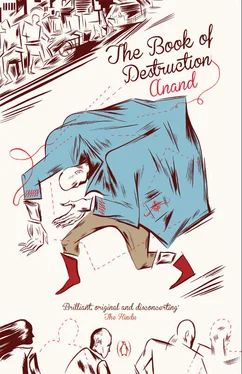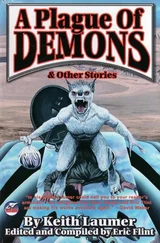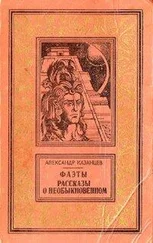Seshadri had described me as a fiction writer; I was a liar and deceiver according to him, though of a different kind. In one sense perhaps it was true. We writers disguise fiction as imagination and present it to our readers, who do not like lies. Writers argue that a totally realistic work would be like a dry newspaper report or documentary film. We labour hard to prove that there are several ways to present the truth and that imagination and fantasy are but some of them. That doesn’t however make the non-existent exist. Why am I justifying myself, making all these apologies? Am I scared of the accusations of a dead thug? But apologies are of no avail to a thug. For he wraps his roomal around my neck not because of any grievance against me. He has no ill feeling or emotion towards his victims. He does not even see their faces. All he sees is the neck. What carries him is his devotion to and faith in his goddess. He kills merely because his goddess has thrown you before him. And why is the goddess throwing you in his way? Because destruction, just like creation, is in the realm of the gods. Closing her eyes, she picks out some from her creation and makes them thugs. With eyes closed, she again plucks some others as victims!
Though he called me a liar and deceiver, Seshadri did not call me a thug. He did not say that his aim was to feed me the gur and convert me into a thug. The only concession he gave me was that I, unlike the thugs, had no ideology or standard methodology in my profession. How he was so sure of that, is another question. There are a number of writers who carry out their job following certain ideologies without taxing their conscience or feelings. He had decided I was a spineless, uncommitted and apolitical writer, without an ideological backing to speak of. One who lingered only on the pains and woes of the people without caring for the dialectical explanations of suffering. I have no complaints. And no time to argue. It is his methodology of jumping to conclusions and launching into action with no use of logic or application of mind that worries me. He had learnt from a nurse that I was now a writer. I am sure that must have been Sister Meera John. As sure as I am that she hasn’t read any of my works. A new view or faith, I may say, seems to be taking hold of every sphere of life — that feelings and concern for human suffering are not relevant, that firm belief in an ideology and following the methodology dictated by that ideology are all that’s needed. A strange kind of fear was permeating every cubic centimetre of space around me. Perhaps that is what the propagators of this new faith are also aiming to do: to rule by spreading fear, fear alone.
Things were becoming more complex. Seshadri’s shadow now loomed not just over my neck but had begun to darken even my thoughts and writing. He was no longer a mere thug, but also philosopher, critic and judge. The problem had already crossed the domain of destruction and entered the realm of thoughts, truth and untruth. Now I see that even here he was not interested in finding the truth. His disagreement was on our perceptions of truth and untruth and the place we give them in our lives. His letter raised the question whether such a sharp division between what is truth and what is untruth is even necessary. Truth or untruth — for what, when and to what extent? Does this issue deserve so much discussion at all? What exactly is the thing called theft, and what is murder? Do such things need any definition? Do animals entertain such thoughts? His arguments and logic, it appeared, led every time to ‘animal nature’.
There are certain nomadic tribes who, even today, practise theft as a traditional profession. They too ask such questions. Do you describe the acts of lions, tigers and cats who stalk their prey as immoral? Does it constitute theft when birds eat grains from farmers’ fields or when trees send out roots to seek wet areas and suck in the water and nutrients from the land?
There is a belief among us who lead a settled life that gypsies are habitual liars. What a gypsy says today will not be the same as what he says tomorrow, so we believe. Anthropologists who have studied this behaviour hold a different view. If a gypsy tells a different story every time, it is not for the purpose of cheating you, they argue. He is embellishing an incident or fact with newer and newer coatings of imagination every time he describes it and that is the way he handles language. It might be the same as when fiction writers say there could be a number of different texts for each fact and each could be true. By building on the fact continuously, the gypsy too is perhaps striving to bring it closer and closer to the truth, if I may use the word. Instead of viewing reality as a cold and dead entity, he makes it a growing, changing, living phenomenon.
Taking another view, can we ever be sure of what exactly is the truth? Every philosopher, every spiritualist and every scientist has been on this quest, forever. Truth is most likely different for different people. But, amazingly, a lie is not so. A lie is unanimous. Pointing at an elephant and calling it a beetle is a lie and no one will dispute it. In that sense, a lie is more concrete and transparent. One might even say, a lie is truer than the truth.
Of course, Seshadri did not take his arguments to such levels. He stood beyond the abstractions of truth and falsehood. He admitted truthfully that he was a liar. He stated honestly that he was a deceiver. He did not quibble about the right and wrong of it. If he wanted to justify anything, it was his acts, and for that he did not need any of our laws, jurisprudence or culture. Belief alone was sufficient for him. Not that things like history, law, politics or literature were alien to him. Quite the contrary — he employed every branch of thought intelligently and ingeniously. All for the purpose of deception, to distract his prey. In fact all that we have constructed over the ages in the name of culture and civilization lies on one side of the pages. His is the book written on the other side. There is only one thing on his side, his belief. Our pages are all blank to him. He lives in our world, no doubt. He uses its thoughts and takes part in its activities. But without ever acknowledging it.
If the nomadic tribes steal, they claim they do it as a part of their tradition, as a continuation of the ways of the animal kingdom. But they have not constructed an ideology in support of it as Seshadri has done. They view their lies as different expressions of truth. There too they have nothing in common with the arguments Seshadri advances. Yet, the irony is that these people, devoid of both past and future, endlessly wading through the present, are known in our world as the soothsayers or predictors of the future! We do not bother to ask how anyone who has never been familiar with the concept of future can predict it. But then it is the same with courtesans. We invite these women, who are fated to welcome a new man into their chambers every night, to compose and sing songs of eternal love in exquisite poetic language. Does it not indicate a vision that endorses love and future as mere poetical fantasies? Or are we turning hypocrisy itself into a beautiful poem? Look at it from another angle and we can surely find an intellectual answer to both. It is the prostitute who has nothing with which to claim a man who can best weave the dreams of love. It is not the revolutionaries who claim the sole monopoly on the future but the nomads who have no vested interests in it who are the most qualified to predict it. A wandering palm-reading kuratti does not make her predictions on the basis of any ideology but by following a simple methodology. A methodology that follows the length and direction of the lines on her client’s palm. She faithfully and objectively follows a methodology, it is a science to her, even though it has no physiological or historical backing. Thus we arrive at a situation where methodology stands on its own and becomes the truth. A situation not too far removed from that of many of our thinkers and historians. Is this the point where the faithful, the thugs, the historians and the revolutionaries finally meet?
Читать дальше











